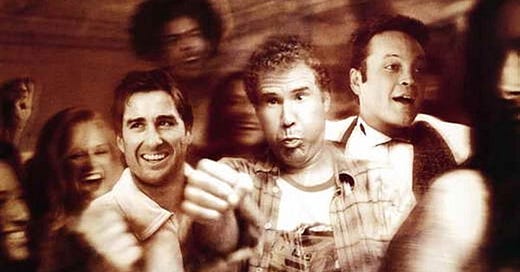On a recent on-campus job visit, one of the faculty told me not to say anything about the fact that I had flunked out of college twice. They meant well by it, because some of the older, stodgier faculty might be set in their ways and judge me for it. This kind of took me back because I’ve actually always seen it as a strength of mine. So many scholars are absolute rock stars “who did the right thing” and did well in grade school, worked their way up through undergraduate and then graduate school and moved on to careers in academia.
I didn’t. I come from a poor, working class family in a town best forgotten by most Americans. Neither of my parents finished high school. Only an aunt and uncle had even attempted college. There was no background, no real understanding of what was necessary to succeed, and thus no push by the family to ensure that it happened. Largey it was foundationless. So it’s little surprise that I performed to mediocre level in high school, which translated to getting demolished in college. Like bad grades, bad habits will follow you wherever you go. They are transferable.
I saw this reinforced when I taught at a public high school in Highlands County, Florida for two years. The vast majority of my students came from poor homes, often with similar situations to my own. For many, even the idea of a collegiate education was a fantasy. It simply wasn’t on the table. Contrast that with my time at The Pine School, a prestigious private school in Hobe Sound, Florida, where students (and parents) expected to make it into other prestigious programs. My former students there are now the current students of professors at Berkeley, Vanderbilt, Florida, Brown, and elsewhere. With resources and experience came an expectation of success.1
But I digress. In 2008 I reenrolled at Tallahassee Community College, essentially starting from scratch at the tender age of 31. I poured myself into my studies, desperate to prove myself greater than the failure I’d demonstrated myself to be earlier in life. My wife at the time was Ivy-educated and her folks were alums of MIT. I needed to prove myself.
But I think in a lot of ways I was chasing something I missed. I never joined a fraternity. Didn’t have a collegiate sweetheart. Never got the warm and fuzzies about being a Murray State University student. So there was part of me who was desperately living in the past. No wonder I became a historian.
So perhaps it’s no wonder why Old School resonates with so many people. After all, how many of us would kill to do it over again? But, as guest Lauren Lassabe Shepherd points out, this movie is a fantasy. It is decidely bro-y. But in doing so, it also reveals perhaps an ethos about how we imagine the university experience. And it’s funny as hell.
Lauren has an especially keen insight on the collegiate experience. In addition to holding a Ph.D. in Higher Education Administration (Institutional Research) from the University of Southern Mississippi, she also teaches in the Department of Education and Human Development at the University of New Orleans. Her upcoming book (available for pre-order and linked below) examines the culture wars on campus in the 1960s. She shows how GOP leaders such as Karl Rove, Bill Barr, Jeff Sessions, Pat Buchanan, and others consciously drove American politics and culture further to the authoritarian right and to "reclaim" American higher education. With the current political climate towards higher education, I don’t think her work could be more relevant.
You can find her book available for pre-order here: https://a.co/d/335odVz
Lauren knows higher education and she had some really cool insights not only about the creation of her work by using conducting oral histories, but the roles that Greek organizations play in the lives of college students. We had a blast making this podcast, and she’ll be back to do Animal House later in the summer.
For now, take a listen to us riffing on Old School. I think you’ll like this one.
Oh, as for any faculty that might judge me for flunking? Bless your hearts.
I miss all of these kids, Highlands and Pine, dearly. One of the cool things about teaching secondary is that you adopt all of these young people as your own. I saw one of my former students yesterday, an exceptional young man who is especially gifted at fly fishing. Absolutely made my day.




I took an eleven year path to finish my undergraduate degree.
I spent the first four years not really sure why I was there... and as a result, did well in classes I liked and terrible in classes I didn't like... my maths record is particularly ignoble.
After four years of accumulating no where near enough credits to graduate, the financial support was gone and I had to leave school. I got a job and started trying to figure out what I wanted to do with my life. After a few years, I thought I'd like to be a teacher, so I went back to school... first to community college to raise my overall GPA back up to a point where I could transfer back into the university system.
My second time in college I had to work full time (and more) and was limited in the load I could carry, so it took me more years to finish.; but this time I was much more focused and on why I was doing it and was correspondingly more successful.
After completing my undergraduate and earning a teaching credential I ended up in my dream job....
There are many paths in life.
Thanks for sharing your story. I am in awe of anyone with a PhD, which makes your perseverance all the more remarkable.